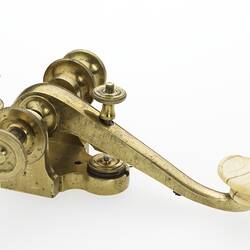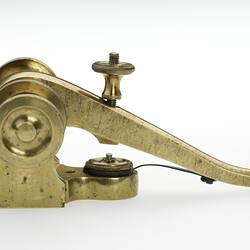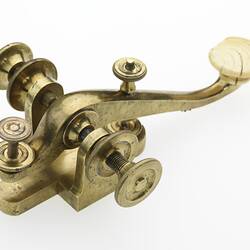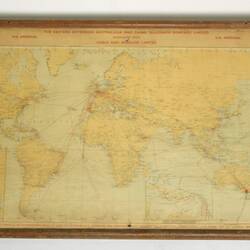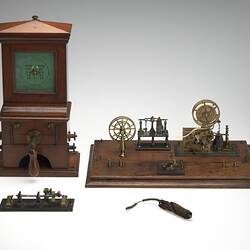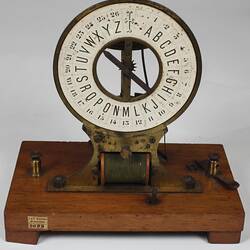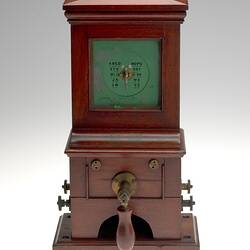Summary
'Camelback' telegraph key, so-called because of its distinctive curved shape. The key was used for the transmission of signals in the Morse electric telegraph system and was manufactured by Chester of New York.
A pivoted spring-loaded metal lever was depressed by the operator to complete an electric circuit and transmit current along the telegraph line. Releasing the lever broke the circuit and cut off the current. Letters and numbers were represented by a sequence of short and long current pulses, transmitted according to a defined code. The most widely used code was generally known as "Morse code".
At the receiving end the sequence of current pulses could be displayed as long and short marks on a paper tape, or could be interpreted by an operator listening to the sounds made by the receiving instrument.
Physical Description
Brass base with brass screw terminals. Curved brass pivoted lever, fitted with ivory knob.
More Information
-
Collection Names
-
Collecting Areas
-
Acquisition Information
Donation from (Estate of) Mr John J. Thompson, 27 Apr 1915
-
Manufacturer
-
Inscriptions
Side of base inscribed: 'CHESTER / NEW YORK / 309'
-
Brand Names
-
Classification
-
Category
-
Discipline
-
Type of item
-
Overall Dimensions
87 mm (Width), 138 mm (Depth), 45 mm (Height)
-
Keywords

